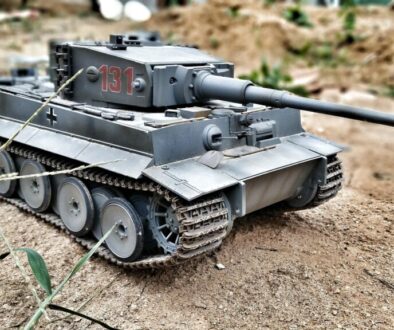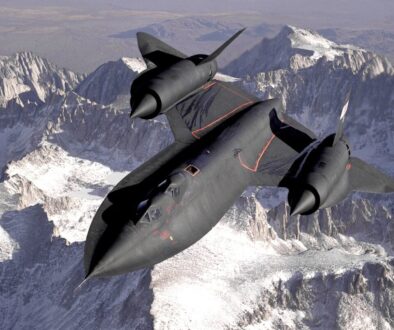Famous Battles That Almost Didn’t Happen: Close Calls in History
Have you ever wondered how close history came to unfolding differently? 🤔 The world as we know it teeters on the edge of pivotal moments, and nowhere is this more evident than in the realm of warfare. Famous battles, etched into our collective memory, were often nail-bitingly close to never happening at all.
Imagine a world where Napoleon triumphed at Waterloo, or where D-Day failed to gain a foothold in Nazi-occupied Europe. These aren’t just hypotheticals – they were real possibilities that could have dramatically altered the course of history. From the shores of Normandy to the frozen streets of Stalingrad, and from the Pacific waters of Midway to the rolling hills of Gettysburg, the fate of nations hung in the balance, often by the slimmest of margins.
Join us as we explore five monumental battles that nearly didn’t occur. We’ll delve into the crucial decisions, chance occurrences, and razor-thin margins that determined the outcomes of these conflicts. Discover how intelligence coups, weather patterns, and even simple twists of fate played their parts in shaping the world we inhabit today. Prepare to see history in a new light as we uncover the close calls that could have rewritten our past – and our present.
The Battle of Waterloo: Napoleon’s Near Victory
The Battle of Waterloo: Napoleon’s Near Victory
Weather’s crucial role
The Battle of Waterloo, fought on June 18, 1815, was a pivotal moment in European history. The heavy rainfall on the night before the battle played a significant role in shaping its outcome. The sodden ground delayed Napoleon’s artillery deployment, giving the Allied forces valuable time to prepare their defenses.
Delayed start and its consequences
Napoleon’s decision to postpone the battle’s start until midday had far-reaching consequences:
- Allowed Allied forces to strengthen their positions
- Gave Prussian reinforcements more time to arrive
- Reduced the time available for French offensive maneuvers
This delay proved costly for the French, as it narrowed their window of opportunity to achieve victory before reinforcements arrived.
Prussian arrival: a game-changer
The arrival of Prussian forces under General von Blücher dramatically altered the battle’s course:
| Time | Event | Impact |
|---|---|---|
| 16:30 | Prussian vanguard arrives | Puts pressure on French right flank |
| 18:00 | Main Prussian force joins | Forces Napoleon to commit reserves |
| 19:30 | Allied general advance | French army begins to collapse |
The Prussian intervention tipped the scales decisively in favor of the Allied forces, transforming a potential French victory into a crushing defeat.
What if Grouchy had arrived?
Marshal Grouchy’s absence from the battlefield remains one of history’s great “what-ifs.” Had he arrived with his 33,000 troops, Napoleon might have:
- Countered the Prussian threat effectively
- Maintained numerical superiority on the battlefield
- Potentially achieved a victory that could have altered European history
The narrow margin between victory and defeat at Waterloo underscores the battle’s significance as a turning point in Napoleon’s career and European politics.
D-Day: Operation Overlord’s Precarious Success
D-Day: Operation Overlord’s Precarious Success
Weather Forecast Dilemma
The success of D-Day hinged on a crucial weather forecast. General Eisenhower faced a difficult decision when meteorologists predicted a brief window of favorable conditions amidst stormy weather. This narrow opportunity proved pivotal for the invasion’s timing.
German Miscalculations
Hitler’s forces made several critical errors:
- Underestimating Allied capabilities
- Misinterpreting intelligence reports
- Focusing on the Pas-de-Calais region
These miscalculations left Normandy beaches vulnerable to the Allied assault.
Rommel’s Absence
Field Marshal Erwin Rommel, the “Desert Fox,” was notably absent on D-Day. He had returned to Germany for his wife’s birthday, leaving a leadership vacuum at a critical moment. This absence delayed the German response to the invasion.
Allied Deception Tactics
Operation Bodyguard, a complex web of deception, played a crucial role:
| Tactic | Purpose |
|---|---|
| Fake radio traffic | Mislead German intelligence |
| Inflatable tanks | Create illusion of phantom armies |
| Double agents | Feed false information to the enemy |
These tactics successfully diverted German attention from Normandy.
The Impact of Paratroopers
Allied paratroopers faced significant challenges:
- Scattered landings due to poor visibility
- Heavy anti-aircraft fire
- Flooded fields
Despite these obstacles, their operations disrupted German communications and secured key objectives, contributing significantly to the invasion’s success.
Battle of Midway: America’s Fortunate Intelligence
Battle of Midway: America’s Fortunate Intelligence
Breaking the Japanese Code
The Battle of Midway’s outcome hinged on a crucial breakthrough: American cryptanalysts cracking the Japanese naval code. This intelligence coup allowed the U.S. to anticipate Japan’s plans and prepare accordingly.
Yamamoto’s Complex Plan
Admiral Isoroku Yamamoto devised an intricate strategy to lure the U.S. Pacific Fleet into a trap:
- Fake attack on the Aleutian Islands
- Main assault on Midway Atoll
- Ambush American reinforcements
However, the plan’s complexity became its weakness when the U.S. discovered it.
The Decisive Role of US Carriers
American aircraft carriers played a pivotal role in the battle:
| Carrier | Key Contribution |
|---|---|
| USS Enterprise | Launched dive bombers that sank Akagi and Kaga |
| USS Yorktown | Damaged Japanese carrier Sōryū before being sunk |
| USS Hornet | Launched unsuccessful Torpedo Squadron 8, distracting Japanese defenses |
These carriers, positioned strategically due to intelligence, turned the tide of battle.
Japanese Overconfidence
Japan’s recent victories bred overconfidence, leading to critical mistakes:
- Underestimating American naval strength
- Failing to conduct thorough reconnaissance
- Assuming tactical surprise
This hubris, combined with American preparedness, resulted in a decisive U.S. victory that altered the course of the Pacific War.
Stalingrad: Hitler’s Stubborn Stand
Stalingrad: Hitler’s Stubborn Stand
A. The importance of oil fields
The Battle of Stalingrad was pivotal in World War II, largely due to Hitler’s obsession with capturing the Caucasus oil fields. These resources were crucial for fueling the German war machine. Hitler’s determination to secure this strategic asset led to a fateful decision to split Army Group South, ultimately stretching German forces thin.
B. Soviet counteroffensive surprises
The Soviets, despite heavy losses, managed to launch Operation Uranus, a massive counteroffensive that caught the Germans off guard. This surprise attack encircled the German 6th Army, trapping over 300,000 Axis soldiers in Stalingrad.
C. German supply chain failures
As winter set in, the German supply chain crumbled:
- Luftwaffe’s inability to airlift sufficient supplies
- Severe weather conditions hampering ground transportation
- Soviet disruption of supply routes
This resulted in a dire situation for the trapped German forces, leading to widespread starvation and lack of ammunition.
D. Hitler’s refusal to retreat
Hitler’s stubbornness reached its peak with his refusal to allow a breakout attempt. This decision sealed the fate of the 6th Army:
| Hitler’s Decision | Consequences |
|---|---|
| No retreat order | Trapped 6th Army |
| Promised air supplies | Failed to materialize |
| Ordered “fortress” defense | Led to mass casualties |
The Führer’s inflexibility turned Stalingrad into a symbol of German defeat, marking a turning point in the war. His obstinate stand cost Germany not only a strategically important battle but also an entire army, shifting the momentum decisively in favor of the Allies.
Battle of Gettysburg: Lee’s Gamble
Battle of Gettysburg: Lee’s Gamble
A. Accidental engagement
The Battle of Gettysburg began unexpectedly on July 1, 1863, when Confederate forces encountered Union cavalry west of the town. This chance meeting escalated into a full-scale battle, catching both sides off guard and setting the stage for one of the most pivotal engagements of the American Civil War.
B. Absent cavalry and poor intelligence
General Robert E. Lee’s campaign was hampered by:
- Absence of J.E.B. Stuart’s cavalry
- Lack of reliable intelligence on Union positions
- Overconfidence in Confederate abilities
This information vacuum led to critical strategic missteps and contributed to the battle’s eventual outcome.
C. Pickett’s Charge: a fatal decision
On July 3, Lee ordered a massive frontal assault on the Union center, now known as Pickett’s Charge. This decision proved catastrophic:
| Aspect | Details |
|---|---|
| Participants | 12,500 Confederate soldiers |
| Distance covered | Nearly a mile of open ground |
| Union defense | Well-entrenched with artillery support |
| Outcome | Over 50% Confederate casualties |
The failed charge marked the turning point of the battle and Lee’s invasion of the North.
D. The impact on the Civil War
Gettysburg’s aftermath reshaped the Civil War:
- Halted Confederate momentum in the Eastern Theater
- Boosted Union morale
- Coincided with the fall of Vicksburg, splitting the Confederacy
- Inspired Lincoln’s Gettysburg Address, redefining the war’s purpose
The battle’s outcome, hanging on Lee’s gambles and missed opportunities, ultimately contributed to the preservation of the Union and the end of slavery in America.
The annals of military history are filled with pivotal battles that could have easily gone the other way. From Napoleon’s near-triumph at Waterloo to the Allied forces’ precarious success on D-Day, these close calls remind us of the fine line between victory and defeat. The Battle of Midway showcased how crucial intelligence can be in turning the tide of war, while Stalingrad demonstrated the devastating consequences of strategic inflexibility. At Gettysburg, Lee’s bold gamble almost reshaped the American Civil War.
These famous battles serve as a testament to the unpredictable nature of warfare and the profound impact that split-second decisions, chance events, and unforeseen circumstances can have on the course of history. As we reflect on these momentous conflicts, we are reminded of the importance of adaptability, preparation, and the often-overlooked role of luck in shaping the world we live in today.

